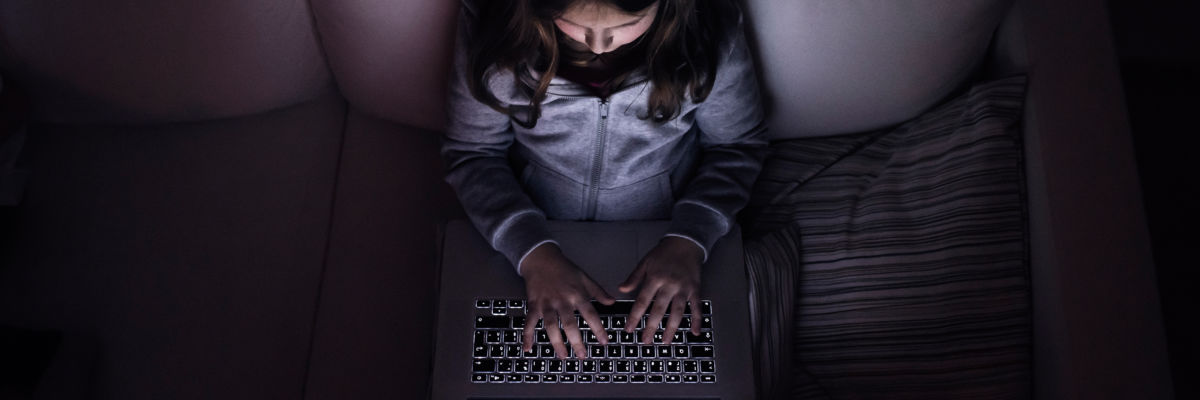
As the joys of Christmastide surge to the Epiphany, Catholics are reminded on the third day of Christmas, with all the tough grit of the Catholic faith, that our Lord came to bring not the peace of three French hens, but the sword of division and death.
The silent night is hardly past before the slaughter of the Holy Innocents dawns red. The path of salvation has always been awash with blood and tears, and the celebration of this first voiceless company of infant martyrs, who died for Christ’s sake, gives a sobering balance to the feast of children, childhood, and the family.
On the heels of the Nativity, the terrible fire of the slaying of the Holy Innocents scorches the second chapter of Matthew:
Then Herod, when he saw that he had been tricked by the wise men, was in a furious rage, and he sent and killed all the male children in Bethlehem and in all that region who were two years old or under, according to the time which he had ascertained from the wise men. Then was fulfilled what was spoken by the prophet Jeremiah:
A voice was heard in Ramah,
wailing and loud lamentation,
Rachel weeping for her children;
she refused to be consoled,
because they were no more (2:16-18).
The wise men were right, as T.S. Eliot wrote, to wonder if they were led all that way for birth or death. The innocence of those firstborn sons who died at the birth of Christ because of Herod’s paranoia made them sacrificial lambs for the Lamb of God, both born to die for an eternal purpose.
Consider the relevance of the Holy Innocents in our own day, where we suffer from not so much a slaughter of innocents as of innocence. We should not forget the literal innocent blood dotting the background of our life, in the murder of millions of unborn children through the atrocity of abortion. But this literal slaughter, and the acceptance of it by so many, has given way to another species of subtle slaughter. Our collapsing culture also attacks and dispatches children’s innocence, which should be sacred and inviolate, strangling too that innocence of experience and moral certitude that instinctively rejects depravity.
This bloodless slaughter of innocence comes about by a strategy centered on falsehood. The falsehood that is rampant in our society, our media, and even our churches and schools robs our children of their purity, given half a chance, through the elimination of the motions of the heart to love authentically and the preservation of the life of grace, leaving boys and girls, men and women, fathers, mothers, priests, teachers, tradesmen, and lawmakers impaired in their ability to be awed by truth and to find joy in the beautiful.
The sad result is jaded spirits that reject formation and inspiration and even salvation. Cynicism develops as a defense mechanism, leaving young people crusted over and swallowed up by the distractions of addicting entertainment. Children fall into apathy in a world that eventually fails to titillate. The never-ending procession of temptations against reality result in a loss of desire for reality, which is the foundation of any sound mind. And the world stands by, for the most part, witnessing and suffering these outrages.
In his masterpiece of a poem, “Lepanto,” G.K. Chesterton reviews the lamentable lassitude of sixteenth-century Christendom, looking on passively, or perversely, entangled in heresy and politics, as the forces of Islam swept across Europe.
The North is full of tangled things and texts and aching eyes
And dead is all the innocence of anger and surprise,
And Christian killeth Christian in a narrow dusty room,
And Christian dreadeth Christ that hath a newer face of doom,
And Christian hateth Mary that God kissed in Galilee,
But Don John of Austria is riding to the sea.
The innocence of anger and surprise is all but dead in our day of excuses and confusion. Good fences make good neighbors. You be you. Live your truth. It’s none of my business. These are the relativist slogans for the slaughter of innocence that takes place in our neighborhoods and churches and schools. And so many people find themselves reluctant to stir, let alone struggle, in the name of innocent anger to save innocence from being torn asunder.
What is the answer? As Catholics, we must do all we can to safeguard innocence, to enshrine wonder and delight, to shield our children from things they don’t need to know at a tender age and hold off on introducing the burden of practicalities that interfere with the playful optimism of youth. Telling kids that Christmas has become a secular slog of commercialism is a kind of millstone that interrupts their innocence and puts up obstacles to wonder.
If our innocents are deprived of wonder, their path to cynicism, virtual reality, pornography, and addiction is that much shorter. This Christmas season, let us cherish and guard the innocence of our children and allow them to find the beauty in invisible realities that include those creations of imagination, folklore, and whimsy that make our faith so beautiful. These are the mysteries that can sustain us and our children through the fake and sullied world that lies in wait to slaughter the innocence that will save us.
We celebrate the innocence of the Word Made Flesh as we commemorate the innocents who were put to death by the iniquity that Jesus Christ came to redeem us from. Let us not only honor the innocence of our children, but also take up the innocence of righteous indignation at those plots and poisons that seek to deprive our little ones of the quality we must preserve, by any means necessary and despite the guilt of sin, so we all may live on as children of God, as holy innocents ourselves.



